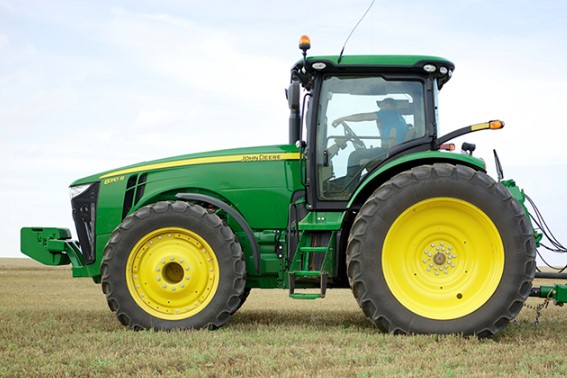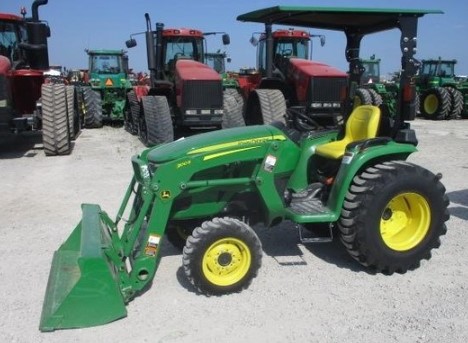John Deere is a trusted name in the agriculture industry, renowned for its high-quality equipment and reliable performance. Despite this superior quality, even John Deere machinery can experience certain issues, including regeneration problems.
Regeneration is an important process for reducing emissions and maintaining compliance with environmental regulations; however, when something goes wrong it can be a source of frustration for operators.
This article explores the causes, solutions, and prevention strategies associated with John Deere regeneration problems to help ensure your equipment remains operating at peak efficiency.

Keep reading to find out more.
Common Causes of John Deere Regeneration Problems

John Deere engines employ a diesel particulate filter (DPF) to capture and remove any potentially hazardous particles from the exhaust. It is necessary to regularly regenerate the DPF in order to burn off any accumulated soot and keep it functioning properly.

However, regeneration can fail for several reasons, including:
- Low engine temperatures can be caused by a variety of factors, including insufficient coolant levels, blocked radiator fins or air intake systems and thermostat malfunctions.
- Insufficient exhaust temperatures can result from faulty sensors or malfunctioning EGR valves which do not properly regulate the temperature of the exhaust gases.
- Faulty sensors may lead to incorrect readings on fuel pressure, cylinder head temperature and other vital parameters that affect engine performance.
- Malfunctioning exhaust gas recirculation (EGR) valves may cause too much unburned fuel to enter the combustion chamber, leading to poor fuel economy and power output as well as higher emissions than expected from modern engines with catalyst converters fitted.
- Poor quality fuel can contain impurities like water or particles that clog filters or damage injectors resulting in reduced power and poorer cold starts among other issues affecting vehicle performance overall..
- Incomplete regeneration cycles are one of the main causes for vehicles emitting more smoke than usual due to soot build-up in diesel particulate filters when they don't burn off quickly enough through short trips at low speed conditions over long periods of time.

Solutions for John Deere Regeneration Problems
If you are experiencing John Deere regeneration problems, there are several steps you can take to address the problem:
- The engine and exhaust temperatures must be checked to ensure they are at the required levels for regeneration.
- All sensors and wiring should be inspected for any damage or faults, which should then be repaired or replaced accordingly.
- Depending on the level of buildup, the diesel particulate filter might need to be cleaned or replaced altogether.
- If it is malfunctioning, an EGR valve should also be replaced; high-quality fuel should also be used to prevent buildup and reduce incomplete regeneration cycles as a precautionary measure.
- In cases where a forced regeneration cycle is necessary, diagnostic software can initiate this process in order for it to occur properly and efficiently.
- Lastly, all components associated with engine regeneration ought to undergo regular maintenance checks in order guarantee optimal performance of all systems involved
Prevention Strategies for John Deere Regeneration Problems
To minimize the risk of regeneration problems with your John Deere equipment, there are several preventative measures you can take
- Ensure the manufacturer's guidelines for maintenance and servicing are followed.
- Utilize high-quality fuel and additives that are compatible with the equipment in use.
- Monitor engine and exhaust temperatures regularly to guarantee they remain within their recommended range.
- Prevent short, low-speed trips as these may not allow the engine to attain its necessary temperature for regeneration processes.
- Consider investing in a monitoring system that can alert users of potential regeneration issues prior to them becoming more severe issues
Key Takeaways for Equipment Owners
- John Deere equipment is unfortunately prone to regeneration problems, which can arise from a variety of causes including low engine or exhaust temperatures, faulty sensors or valves, poor fuel quality, and incomplete regeneration cycles.
- To address these issues, experts suggest checking temperatures, inspecting sensors and wiring, cleaning or replacing the DPF (Diesel Particulate Filter), replacing the EGR valve (Exhaust Gas Recirculation), using high-quality fuel as well as running a forced regeneration cycle if necessary.
- Prevention strategies that could help reduce the likelihood of encountering such issues include following the manufacturer's guidelines for maintenance; ensuring use of high-quality fuels; regularly monitoring temperatures; avoiding short trips; and investing in a monitoring system so one can take corrective action quickly should an issue arise.
Keep Your John Deere Equipment Running Smoothly with Regeneration Problem Solutions
John Deere equipment is designed to provide reliable and efficient performance. To ensure that it continues to do so, operators should be mindful of common John Deere regeneration problems and take steps to prevent them. Regular maintenance and servicing according to the manufacturer's guidelines along with using high-quality fuel and additives will help keep your machinery running smoothly. Additionally, closely monitoring your machine can alert you of any potential issues before they become more serious which in turn could save time, money, and hassle due to costly downtime.
